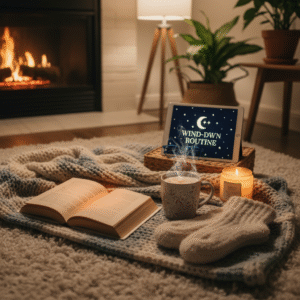Getting enough quality rest is essential not just for humans, but for dogs too. Yet many pet owners unknowingly sabotage their furry friend’s sleep with everyday habits.
In this article, we’ll explore the most common mistakes that impact your dog’s rest — and offer simple fixes to help your pet sleep peacefully through the night. These dog sleep tips are backed by behavior science and veterinarian advice.
The Most Overlooked Dog Sleep Mistakes at Home
Not all tired dogs sleep well. Some behaviors you think are harmless may be quietly affecting your dog’s rest. These dog sleep tips will help you recognize and correct the most common issues.
1. Unpredictable Bedtime Routine
Dogs thrive on routine. If your pet goes to bed at a different time every night, their internal clock gets confused. This inconsistency can lead to restlessness and interrupted sleep.
Set a consistent nighttime routine that includes wind-down time, a final potty break, and a calm environment.
2. Noise and Light During Sleep Hours
Dogs are sensitive to sound and light. Leaving the TV on, sudden noises, or even blinking LEDs can disturb their sleep cycles.
Keep your dog’s sleep space quiet and dim at night. Consider blackout curtains and sound machines if needed.
3. Uncomfortable Sleeping Surface
Your dog’s bed matters more than you think. A thin or worn-out cushion can lead to joint pain and poor rest.
Choose orthopedic dog beds or memory foam options, especially for senior dogs or large breeds.
4. Lack of Physical or Mental Stimulation
Dogs that don’t burn energy during the day tend to stay alert at night. Boredom or anxiety is a major cause of nighttime restlessness.
Make sure your dog gets enough exercise, play, and mental stimulation — especially 2–3 hours before bedtime.
5. Ignoring Health or Behavior Changes
If your dog suddenly starts pacing, panting, or waking up at night, it may be more than a bad habit. Pain, allergies, or anxiety can all disrupt sleep.
Consult your vet if sleep problems persist, especially if accompanied by other symptoms.
How Can I Tell If My Dog Is Sleeping Well?
Watch for uninterrupted naps and calm behavior
A healthy dog typically sleeps 12–14 hours daily. If your dog seems grumpy, clingy, or overly hyper, poor sleep may be to blame. Good sleepers nap easily and wake up refreshed.
What’s the Ideal Sleep Setup for My Dog?
Keep it dark, quiet, and cozy
The best sleeping spot is away from foot traffic, with a soft bed and no drafts. Add a favorite blanket or worn shirt with your scent for added comfort.
Conclusion
Your dog’s sleep quality impacts their mood, energy, and even long-term health. By avoiding these common sleep mistakes and applying smart dog sleep tips, you help your pet rest better — and enjoy a calmer household too.
Try adjusting your dog’s sleep routine today. You might both sleep better tonight.
Frequently Asked Questions
What is the best sleep schedule for dogs?
A consistent bedtime between 8–10 p.m., after a calm evening routine, helps regulate your dog’s natural sleep rhythm.
Can dogs sleep with lights or TV on?
Dogs sleep best in dark, quiet environments. Bright lights and noise may interrupt their deep sleep phases.








